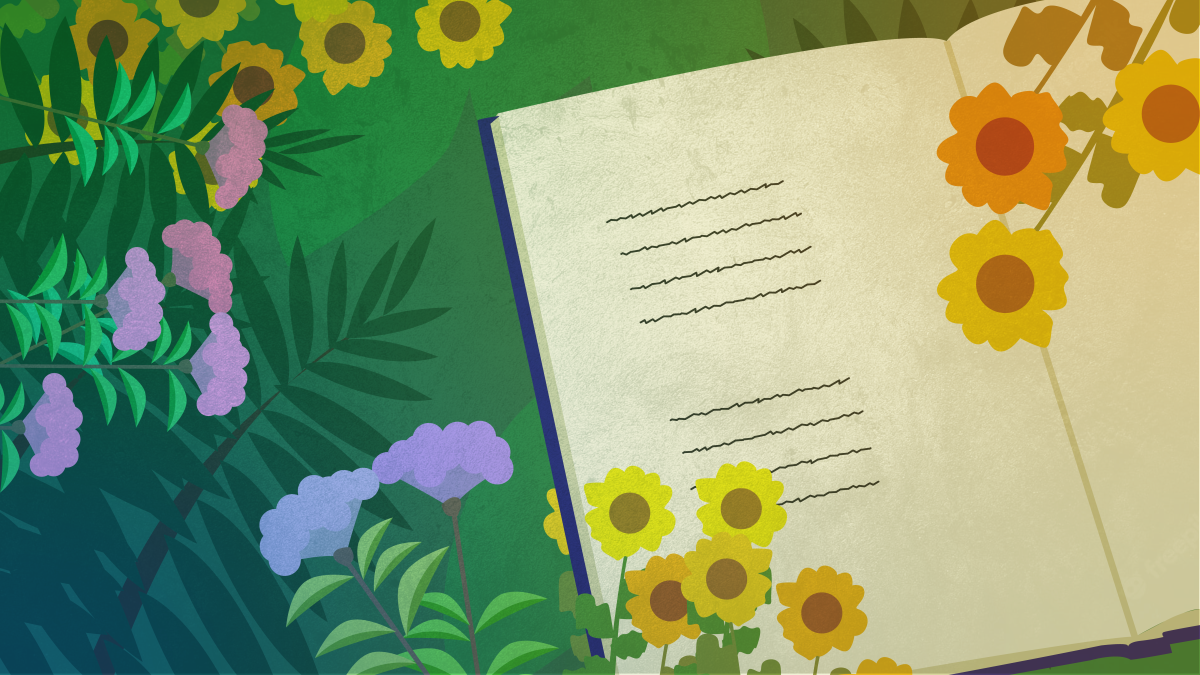The NC State Literary Reading Series has taken off with the start of the new semester. The first installment in the series took place on Thursday with Destiny Hemphill, a chronically ill ritual worker and the visiting poet of this academic year.
Taylor Ofori, coordinator for Deaf and Hard of Hearing as well as Deaf and Blind Services, and Valerie McMillan, sign language interpreter, were present to translate the entire reading into ASL.
When asked about how her passion for poetry started, Hemphill traveled all the way back to her childhood.
“I had a speech impediment when I was young, and I learned how to read and write fairly early,” Hemphill said. “I was reading by two and I was writing by three, but people had a lot of trouble understanding my speech, so it became easier for me to write than to speak when I was young.”
The reading event focused on Hemphill’s 2023 poetry collection, “Motherland.”
“I’m very attentive to grief,” Hemphill said. “And I think of grief not only as an individualized experience, but as a collective one that has political possibility. I’m really interested in reckoning with grief and the grief caused by various political failures and devastation, and how that might compel us to refashion the world in a way that is livable. I carry both the tension of suspicion because of that and also the hope of language being a vehicle for liberation.”
Hemphill said there is a difference between the professionalized practice of poetry and poetry spaces regarding underrepresentation of minorities in poetry.
“Publishing in different institutions that may have a lot of funding or resources definitely replicate the same systemic power differentials,” Hemphill said. “They are not immune from these different systems of power, but they are shaped by them.”
Poetry, though, does not only exist in the publishing industry.
“Publishing and books and journals aren’t the only way to engage with poetry and I think there are a lot of different people who feel compelled to poetry, whether or not they end up with publication,” Hemphill said.
The English department at NC State is trying to bring more poetry into the lives of students. Chelsea Krieg is the interim director for the MFA program and organizer of the Literary Reading Series that began in 2005.
“I’m excited to hear [Hemphill’s] work and have the students engage a little bit more with her ideas on the page,” Krieg said. “It’ll be a really rich opportunity for our graduate students to see and hear her work come to life in the room as well.”
Krieg said poetry doesn’t take the same space in our contemporary society like it used to.
“Poetry is interesting — there are a lot of people that don’t think about poetry, or say they don’t think about poetry, or don’t care about it, or they feel kept out of it for one reason or the other,” Krieg said. “But then it’s something we often turn to. When do you hear poems? You hear them at funerals, you hear them at weddings. You have them on cards. You have them at the birth of babies. The most important moments in our lives are often when we turn to poetry. So there’s something to the idea that poetry is necessary.”
With NC State being a world renowned STEM university, poetry is often forgotten outside of creative writing and English classrooms. Krieg said poetry can interplay with any discipline or profession.
“What we do with our students is really engaging them in critical and creative thinking, which can just apply to anything, anywhere,” Krieg said. “I think that there’s an opportunity to really think about how that can connect with our more hard sciences or Applied Sciences groups, how we can work together to show that there’s value in this thing that’s not as concrete as a job.”
At first, poetry can feel intimidating, particularly when it is commonly connected to complicated and antiquated language.
“Most of us in high school read Emily Dickinson and John Dunn and maybe a Walt Whitman poem, but these are writers that were writing centuries ago,” Krieg said. “They’re using a vernacular that is not ours. They are talking about issues that were relevant to them at the time, but may not be relevant to us anymore.”
Instead, we can look to modern writers to better connect with contemporary content.
“I think there’s something to be said in reading living writers,” Krieg said. “And trying to figure out where there might be writers that are talking about things that you feel are relevant to you or connected to you. When you go back to thinking about trying to find your entryways, think about how this poem made you feel at first and then go back and see if you can intellectualize that.”
The Literary Reading Series continues throughout the fall semester with events on Oct. 22 and Nov. 14 showcasing various writers and poets. Learn more about the reading series on the CHASS website.














